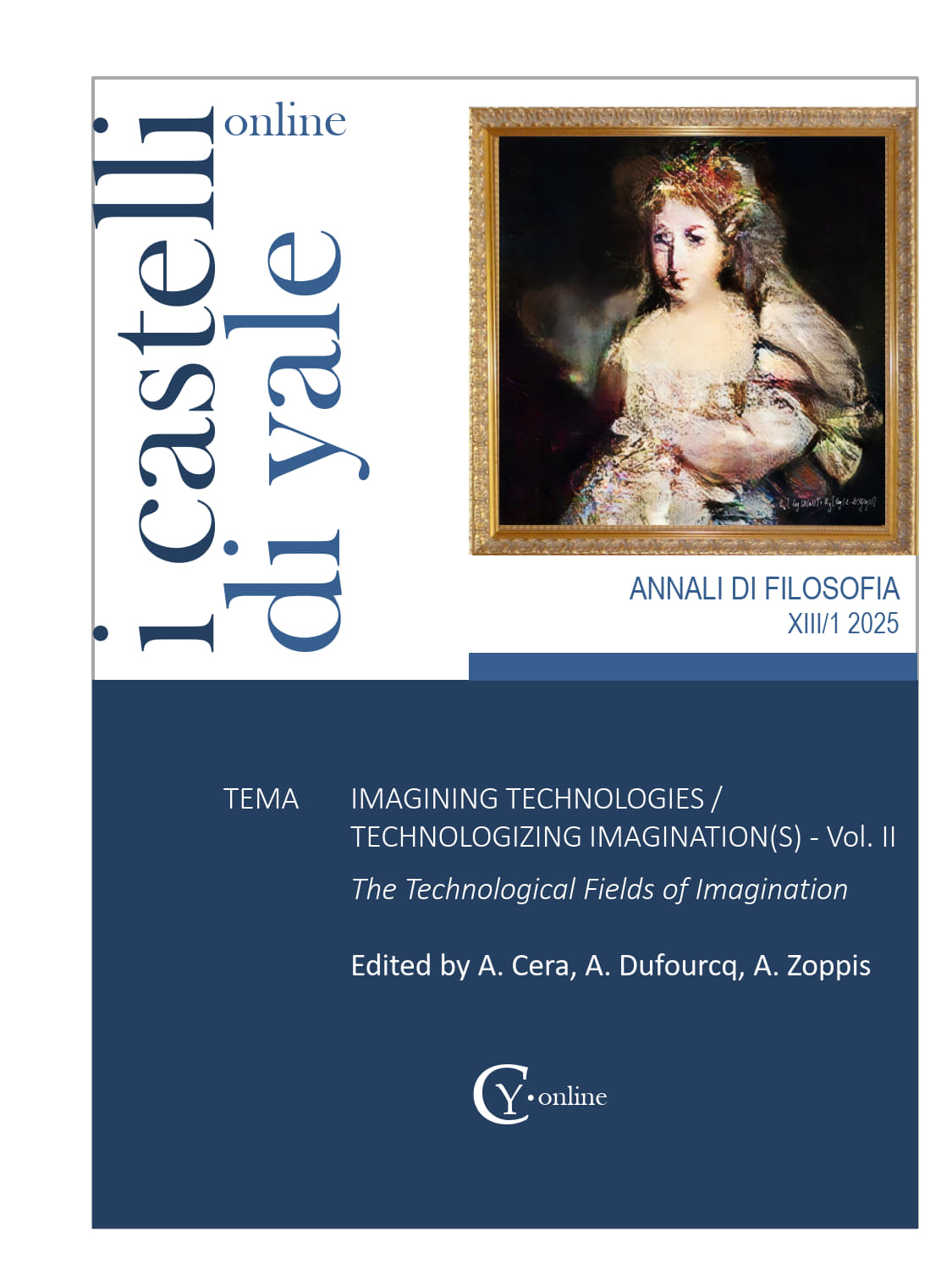Boredom as the Modern Condition
DOI:
https://doi.org/10.15160/2282-5460/2940Parole chiave:
Boredom, Modernity, Proprium, Paradox, KracauerAbstract
This article discusses the centrality of boredom for the constitution of the modern subject as its proprium. It distinguishes between three forms of boredom: that of indeterminate duration –boredom as same without other; that of repetition – boredom as other without same; and that of self-abdication – boredom as the rupture of same and other. The discussion then turns to Siegfried Kracauer’s reflections on boredom, in which he identifies and explores its inherent paradoxes. By contrasting everyday boredom with radical one, Kracauer argues that radical boredom opens an entirely new horizon of thought and action that might allow us to stand up to the social and political challenges of modern times.
Riferimenti bibliografici
Barthes, R. (1995). Michelet. Paris: Seuil.
Benjamin, W. 1972. “Ein Aussenseiter macht sich bemerkbar. Zu S. Kracauer, ‘Die Angestellten’”. In Gesammelte Schriften Band III, hrsg. von H. Tiedemann-Bartels. Frankfurt am Main: Suhrkamp (219-225).
Crangle, S. (2010). Prosaic Desires: Modernist Knowledge, Boredom, Laughter, and Anticipation, Edinburgh: Edinburgh University Press.
Dickens, Ch. (2008). Bleak House. Oxford: Oxford University Press.
Durkheim, E. (1898). “Representations individuelles et representations collectives.” Revue de métaphysique et de morale 6, 273-302.
Erasmus, 1993. Praise of Folly. Engl. Trans. B. Radice. London: Penguin.
Fromm, E. (2004). The Dogma of Christ and Other Essays on Religion, Psychology and Culture. New York: Routledge.
Goodstein, E. (2005). Experience without Qualities: Boredom and Modernity. Stanford: Stanford University Press.
Halbwachs, M. (1992). On Collective Memory, Eng. Trans. L. A. Coser. Chicago: University of Chicago Press.
Heller, A. (2009). A Theory of Feelings (2nd ed.). Lanham: Lexington Books.
Kant, I. (1968). “Anthropologie in pragmatischer Hinsicht.” In Kants Werke. Akademie Textausgabe VII: Der Streit der Fakultäten; Anthropologie in pragmatischer Hinsicht (117-334). Berlin: de Gruyter.
Kracauer, S. (2011). „Langeweile.“ In Werke, Band 5.2: Essays, Feuilletons, Rezensionen 1924-1927. hrsg. von I. Mülder-Bach (161-164). Frankfurt a. M.: Suhrkamp.
Kracauer, S. (1995). “Boredom.” In The Mass Ornament: Weimar Essays. Engl. Trans. Th. Y. Levin (331-334). Cambridge: Harvard University Press.
Lefebvre, H. (1991). “What is possible.” In Critique of Everyday Life vol. 1. Engl. Trans. J. Moore (228-252). London: Verso.
Malevich, K. (1994). Len’ kak deystvitelnaya istina chelovechestva. Moscow: Gilea.
Meyer Spacks, P. (1995). Boredom: The Literary History of a State of Mind. Chicago: The University of Chicago Press.
Nikulin, D. (2022). Critique of Bored Reason. New York, Columbia University Press.
Rousseau, J.-J. (2011). Reveries of the Solitary Walker. Engl. Trans. R. Goulbourne. Oxford: Oxford University Press.
Simmel, G. (1950). “The Metropolis and Mental Life.” In The Sociology of Georg Simmel, Engl. Trans. K. H. Wolff (409-424). New York: Free Press.
Sloterdijk, P. (1987). Critique of Cynical Reason. Engl. Trans. M. Eldred. Minneapolis: University of Minnesota Press.
Svendsen, L. (2005). A Philosophy of Boredom, Engl. Trans. J. Irons. London: Reaktion Books.
Tieck, L. (1986) William Lovell. Stuttgart: Philipp Reclam.
Toohey, P. (2011). Boredom: A Lively Story. New Haven: Yale University Press.
Downloads
Pubblicato
Fascicolo
Sezione
Licenza
Copyright (c) 2025 Dmitri Nikulin

Questo lavoro è fornito con la licenza Creative Commons Attribuzione - Non commerciale - Non opere derivate 4.0 Internazionale.


